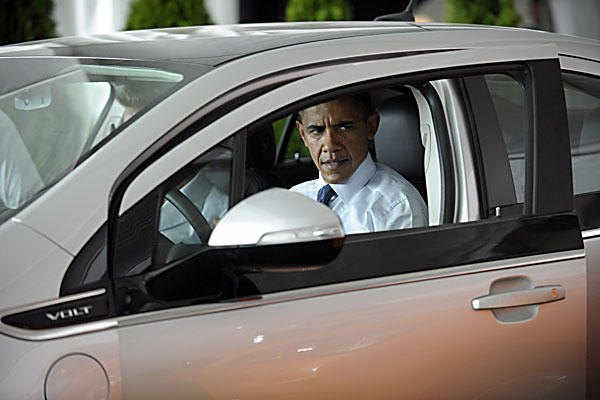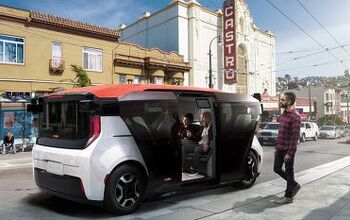Audit Reveals Plug-In Tax Credit Fraud
The DetNews points us to a Treasury Inspector General for Tax Administration report [full document in PDF format here] that reveals
Approximately $33 million in credits for plug-in electric and alternative-fueled vehicles credits were erroneously claimed by at least 12,920 taxpayers through July 24, 2010, according to a report publicly released today by the Treasury Inspector General for Tax Administration (TIGTA).
That means about 20 percent of the $163.9 million in credits claimed by taxpayers from January 1, 2010 to July 24, 2010 for plug-in electric and alternative motor vehicle credits were claimed in error.
The erroneous claims TIGTA identified resulted from inadequate IRS processes to ensure information reported by individuals claiming the credits met qualifying requirements for vehicle year, placed in-service date, and make and model. TIGTA’s review of electronically filed tax returns identified individuals who erroneously claimed the same vehicle for multiple plug-in electric and alternative motor vehicle credits or claimed an excessive number of vehicles for personal use credits.
Zoinks!
TIGTA found that the IRS is unable to track and account for plug-in electric and alternative motor vehicle credits claimed by individuals on paper-filed tax returns. Processes were not established to capture this information from paper-filed tax returns.
Also:
we identified IRS employees who erroneously claimed plug-in electric and alternative motor vehicle credits
The good news: with $13m in fraudulent claims filed, we can take some solace in the fact that only $7m in funds have been lost…
More by Edward Niedermeyer
Latest Car Reviews
Read moreLatest Product Reviews
Read moreRecent Comments
- Probert They already have hybrids, but these won't ever be them as they are built on the modular E-GMP skateboard.
- Justin You guys still looking for that sportbak? I just saw one on the Facebook marketplace in Arizona
- 28-Cars-Later I cannot remember what happens now, but there are whiteblocks in this period which develop a "tick" like sound which indicates they are toast (maybe head gasket?). Ten or so years ago I looked at an '03 or '04 S60 (I forget why) and I brought my Volvo indy along to tell me if it was worth my time - it ticked and that's when I learned this. This XC90 is probably worth about $300 as it sits, not kidding, and it will cost you conservatively $2500 for an engine swap (all the ones I see on car-part.com have north of 130K miles starting at $1,100 and that's not including freight to a shop, shop labor, other internals to do such as timing belt while engine out etc).
- 28-Cars-Later Ford reported it lost $132,000 for each of its 10,000 electric vehicles sold in the first quarter of 2024, according to CNN. The sales were down 20 percent from the first quarter of 2023 and would “drag down earnings for the company overall.”The losses include “hundreds of millions being spent on research and development of the next generation of EVs for Ford. Those investments are years away from paying off.” [if they ever are recouped] Ford is the only major carmaker breaking out EV numbers by themselves. But other marques likely suffer similar losses. https://www.zerohedge.com/political/fords-120000-loss-vehicle-shows-california-ev-goals-are-impossible Given these facts, how did Tesla ever produce anything in volume let alone profit?
- AZFelix Let's forego all of this dilly-dallying with autonomous cars and cut right to the chase and the only real solution.


































Comments
Join the conversation
All the bureaucracy lovers see nothing wrong with layers of tax incentives, hold backs and endless self-contradicting carrots/sticks. They actually think that without such govt enacted behavior engineering, no products would be made and no services delivered. In moment of clarity, they might realize that with a simpler tax code, taxes could be more swiftly and accurately taken from taxpayers and business but it's just too irresistible to not boss and goad people with their progressive urges, guilt and social experimentation.
The Republicans: Run up huge deficits by supporting the military industrial complex, fight illegal and unjust wars, allow deregulation so that "free market" proponents can avoid taxes, outsource jobs and destroy the middle class. The Democrats: Get labeled as "socialists" by trying to right all the wrongs of the previous Republican policy. Rinse and repeat. I'd rather see policies that try to move us forward as a country, into the future, than policies that support entrenched, money-centric dinosaurs that fear the future (there's more risk than profit in the short term) A benign government trying to mitigate some risk is somehow twisted into some sort of 'conspiracy' to alter people's behavior, while the previous administration merely had to wave the flag to spend billions on a war that no one truly wanted (except defense contractors and Halliburton). And that's why I like cars. (even though I'm starting to hate oil.)